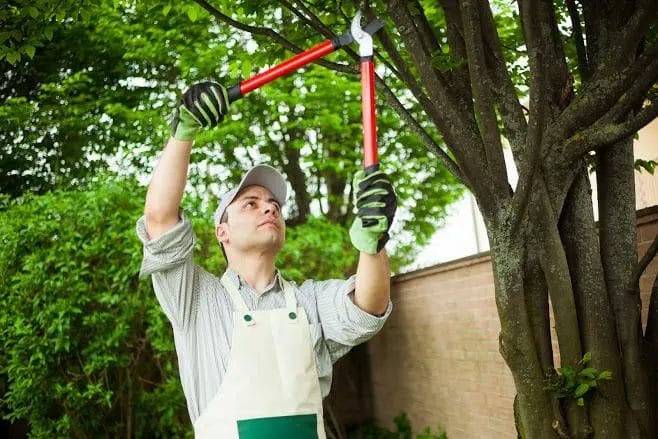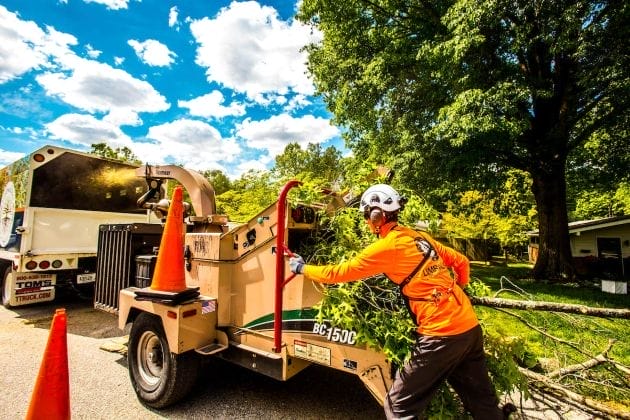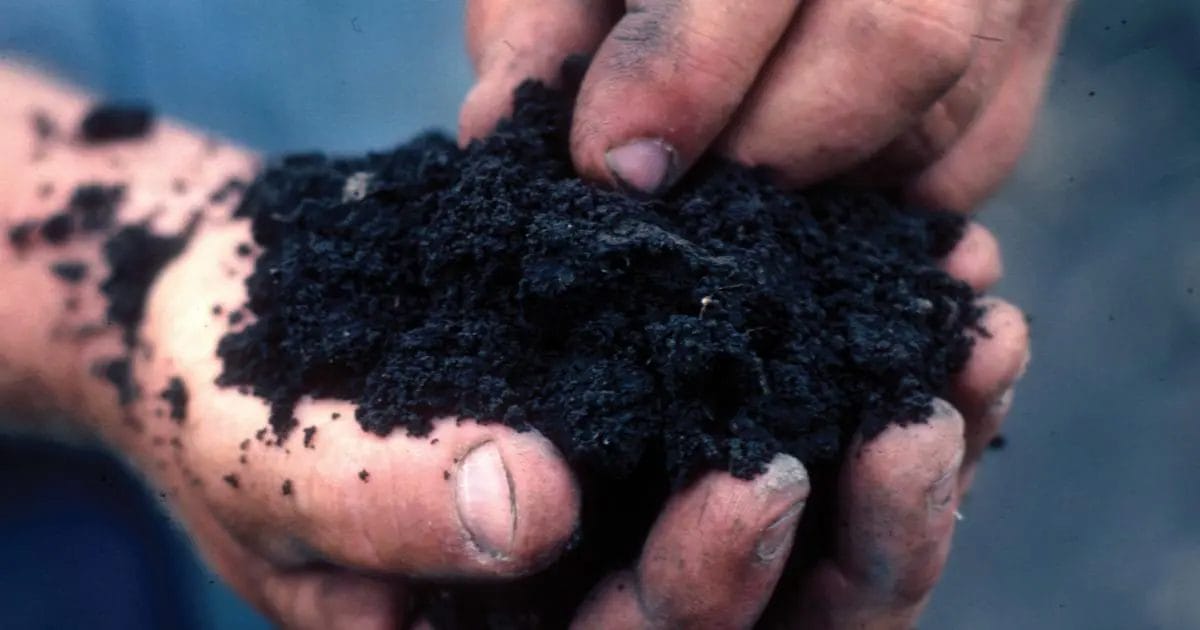
Sustainable gardening empowers you to transform your outdoor area into an eco-friendly haven that supports local ecosystems while conserving resources. By implementing practices such as water-efficient irrigation, native plant selection, and organic soil management, you nurture a vibrant garden that benefits both your community and the planet. Exploring resources like Your Guide to Regenerative Garden Design can enhance your approach. Leveraging expert services like Smith Brothers Services, including Smith Brothers Landscape and Smith Brothers Tree Services, ensures your sustainable garden thrives with professional care and expertise.
Cultivating Biodiversity: The Heart of an Eco-Friendly Garden
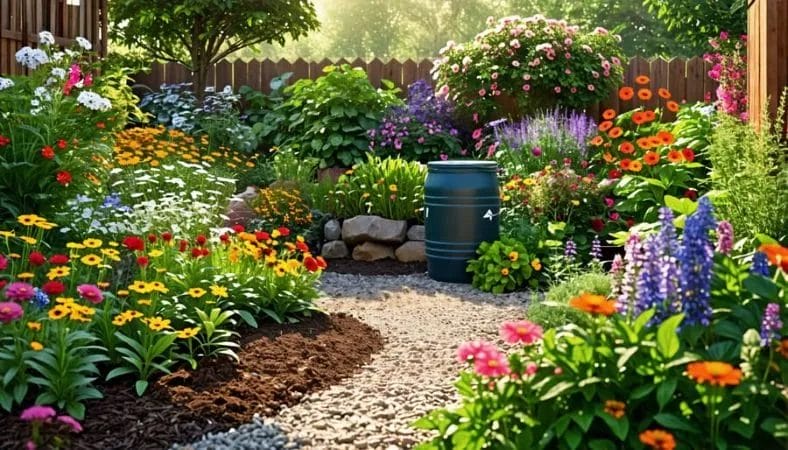
Enhancing biodiversity in your outdoor space fosters a self-sustaining, resilient ecosystem where various plants, insects, and wildlife coexist beneficially. Incorporate diverse plant species and structural layers to attract pollinators, birds, and beneficial insects that naturally manage pests and enrich soil health. Collaborating with Smith Brothers Landscape can deepen your garden’s ecological value by integrating native flora alongside your existing plans, promoting harmony within your local environment while reducing watering and maintenance needs typically associated with non-native selections.
Selecting Native Plants for Resilience
Native plants are adapted to your region’s climate and soil conditions, providing superior resilience against droughts, diseases, and pests. They require less intervention through fertilizers and pesticides, aligning perfectly with sustainable gardening goals. By choosing varieties indigenous to your area, your garden naturally supports local wildlife and conserves water. Smith Brothers Tree Services can help identify trees that not only thrive in your specific location but also enhance your garden’s ecological balance, offering shade, habitat, and soil stabilization.
Embracing Companion Planting for Pest Control
Strategically pairing plants utilizes natural chemical signals and growth habits to repel pests or attract beneficial predators. Marigolds, for example, deter nematodes that harm vegetable crops while attracting pollinators. Incorporate herbs like basil near tomatoes to ward off whiteflies. This synergy reduces your reliance on chemical pesticides and fosters healthier plants. Collaborating with Smith Brothers Services ensures your companion planting plan is tailored to your garden’s unique needs, maximizing pest control through nature’s own mechanisms.
Delving deeper, companion planting works by disrupting pest habits; planting garlic alongside roses can repel aphids effectively, while planting beans near corn enriches the soil by fixing nitrogen. Utilizing a mix of aromatic herbs, flowering plants, and shrubs creates a layered defense system. Smith Brothers Landscape employs scientifically backed companion planting designs that consider sunlight, soil chemistry, and local pest populations. This integrated approach not only protects your plants but also enhances soil fertility and promotes robust growth, contributing to a thriving, eco-friendly garden ecosystem.
Soil Health: The Foundation of Sustainability

Soil forms the backbone of every thriving garden, supporting plant life while maintaining ecological balance. Your approach to soil health influences water retention, nutrient availability, and root system strength. Consider soil not just as dirt but as a living ecosystem teaming with microorganisms that aid decomposition and nutrient cycling, which directly affects the vitality of your plants and the broader environment surrounding your home and garden space.
Understanding Soil Composition and Microbiology
Soil composition varies widely—clay, sand, silt, and organic matter blend to define its texture and drainage capabilities. Microorganisms such as bacteria, fungi, and earthworms play vital roles by breaking down organic material and transforming nutrients into forms plants can absorb. This dynamic biological activity you cultivate promotes soil fertility and resilience, ultimately supporting a healthier, more sustainable garden.
Techniques for Natural Soil Enrichment
Using cover crops, compost, and mulch enhances soil fertility naturally by adding organic matter and preventing erosion. Incorporate green manures like clover or vetch, which fix nitrogen in the soil, enriching it for future growth. Regularly rotate plants and avoid synthetic fertilizers that disrupt microbial communities, thereby preserving soil structure and long-term productivity.
Expanding on natural soil enrichment, integrating organic amendments such as homemade compost or leaf mold not only improves nutrient content but also boosts moisture retention. Mulching with local materials like wood chips—something Smith Brothers Services often recommends—reduces water usage while suppressing weeds. By fostering a diverse soil ecosystem with practices like minimal tillage and crop diversity, you create a sustainable, robust foundation that supports healthy trees and plants, aligning perfectly with the eco-friendly mission of Smith Brothers Landscape and Smith Brothers Tree Services.
Water Management: A Sustainable Approach
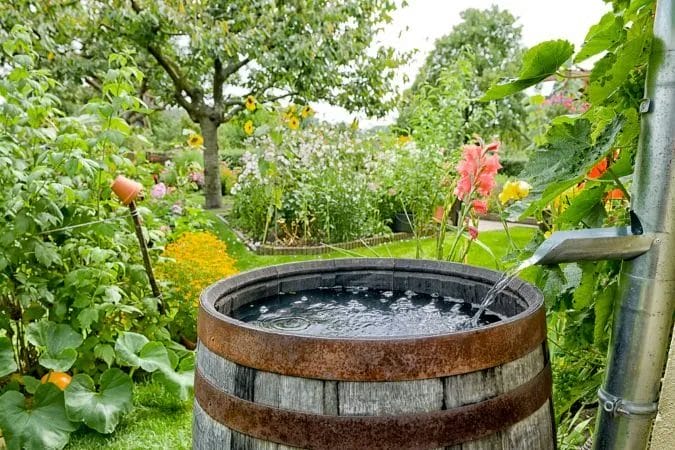
Keeping your garden thriving without wasting water calls for smart strategies that blend efficiency with environmental care. You can reduce water runoff and optimize supply by tailoring your irrigation practices to your specific soil and plant needs. Incorporating native plants that flourish on natural rainfall eases the demand on your water system. Additionally, routine maintenance of your irrigation system—like checking for leaks—can save hundreds of gallons yearly, enhancing sustainability while lowering your water bill.
Implementing Rainwater Harvesting Systems
Collecting rainwater in barrels or cisterns enables you to tap into a free, natural water source for irrigating your garden. Rainwater is free of salts and chemicals found in tap water, making it healthier for your plants. Position collection tanks beneath downspouts or design a rain garden to capture runoff. Smith Brothers Landscape can help you design an efficient setup that matches your garden’s size and rainfall pattern, maximizing captured water without overspilling or stagnating.
Drip Irrigation and Its Water-Saving Benefits
Drip irrigation delivers water directly to plant roots through a network of tubes and emitters, cutting evaporation and runoff. You can reduce water use by up to 50% compared to traditional sprinklers. This method conserves water and supports healthier growth by providing consistent moisture levels. Smith Brothers Services offers customized drip irrigation installations that fit your garden’s layout, ensuring water reaches exactly where it’s needed.
Beyond water savings, drip irrigation minimizes weed growth since water is restricted to targeted areas, reducing favorable conditions for unwanted plants. Its low-pressure system lessens energy consumption, making it an eco-conscious choice overall. By integrating timers or soil moisture sensors, you can automate watering schedules tailored to weather and soil conditions, further conserving resources. For your trees and shrubs, Smith Brothers Tree Services can advise on the best drip setups to nurture deep root development without waste.
Eco-Friendly Pest Control: Natural Methods for a Healthy Garden
Managing pests without harsh chemicals not only protects your plants but also supports local ecosystems. Using natural methods reduces harm to beneficial insects and maintains soil health, integral for your garden’s long-term vitality. By adopting eco-friendly strategies, such as those recommended by Create an Eco-Friendly Garden experts, you encourage a balanced environment where your outdoor space thrives naturally.
Introducing Beneficial Insects and Natural Predators
You can invite ladybugs, lacewings, and predatory beetles into your garden to control aphids, spider mites, and other damaging pests naturally. These beneficial insects target harmful species without disturbing your plants or soil. Encouraging birds, frogs, and bats also offers natural pest control, helping reduce chemical use while enhancing biodiversity around your yard. Implementing these biological controls aligns well with Smith Brothers Landscape’s sustainable gardening principles.
Organic Solutions for Common Garden Pests
Neem oil, insecticidal soaps, and diatomaceous earth are effective organic treatments you can apply to combat pests like aphids, slugs, and caterpillars. Rotating these solutions prevents pest resistance and ensures your garden remains vigorous without chemical buildup in the soil, complementing your eco-friendly landscaping goals supported by Smith Brothers Tree Services. Regular monitoring increases your success rate in managing outbreaks early before they escalate.
Adding to organic options, companion planting helps deter pests by confusing or repelling them—marigolds repel nematodes, while basil can keep mosquitoes at bay. Incorporating these practices with proper mulching and crop rotation enhances your garden’s resilience, often reducing the need for repetitive applications of even organic pest treatments, and supports the health of your trees services through balanced nutrient cycles.
Sustainable Gardening Practices: Minimizing Waste and Energy Use
Focusing on minimizing waste and reducing energy consumption in your garden has a significant environmental impact. By adopting techniques like mulching, proper irrigation, and selecting native plants, you can decrease water use and avoid unnecessary chemical inputs. You might find inspiration in Designing Eco-friendly Outdoor Spaces: 10 Green Tips, which highlights practical methods to refine your approach and make your garden both efficient and sustainable.
Composting: Turning Waste into Gold
Composting transforms kitchen scraps and yard waste into nutrient-rich soil that boosts plant health while cutting down landfill contributions. By maintaining a balanced mix of greens and browns and regularly turning your pile, you accelerate decomposition. Composting not only reduces your dependence on synthetic fertilizers but also strengthens soil structure, which improves water retention and supports beneficial soil organisms vital for your garden’s vitality.
Reducing Lawn Areas and Choosing Energy-Efficient Tools
Cutting back on high-maintenance lawn space by integrating ground covers or native plants decreases water use and fertilizer needs. Pair this with energy-efficient gardening tools—like battery-powered trimmers and mulching lawn mowers—which lower fuel consumption and emissions, helping your gardening routine become cleaner and quieter.
Expanding on lawn reduction, replacing sections of turf with drought-tolerant perennials or edible plants significantly cuts maintenance costs and environmental strain. Tools certified by ENERGY STAR or from brands focusing on lithium-ion battery-powered models reduce your carbon footprint while maintaining your garden’s appearance and health. Landscaping professionals like Smith Brothers Landscape and Smith Brothers Tree Services can offer tailored advice on incorporating these solutions efficiently within your outdoor space.
To wrap up
The success of sustainable gardening lies in thoughtful choices and ongoing care, and with the expertise of Smith Brothers Services, you can create an eco-friendly outdoor space that thrives naturally. By incorporating practices recommended by Smith Brothers Landscape and utilizing professional support from Smith Brothers Tree Services, you ensure your garden promotes biodiversity, conserves resources, and enhances your environment. Embracing these green techniques not only benefits your garden but also contributes positively to the planet, making your outdoor area a beautiful, sustainable haven you can be proud of.

